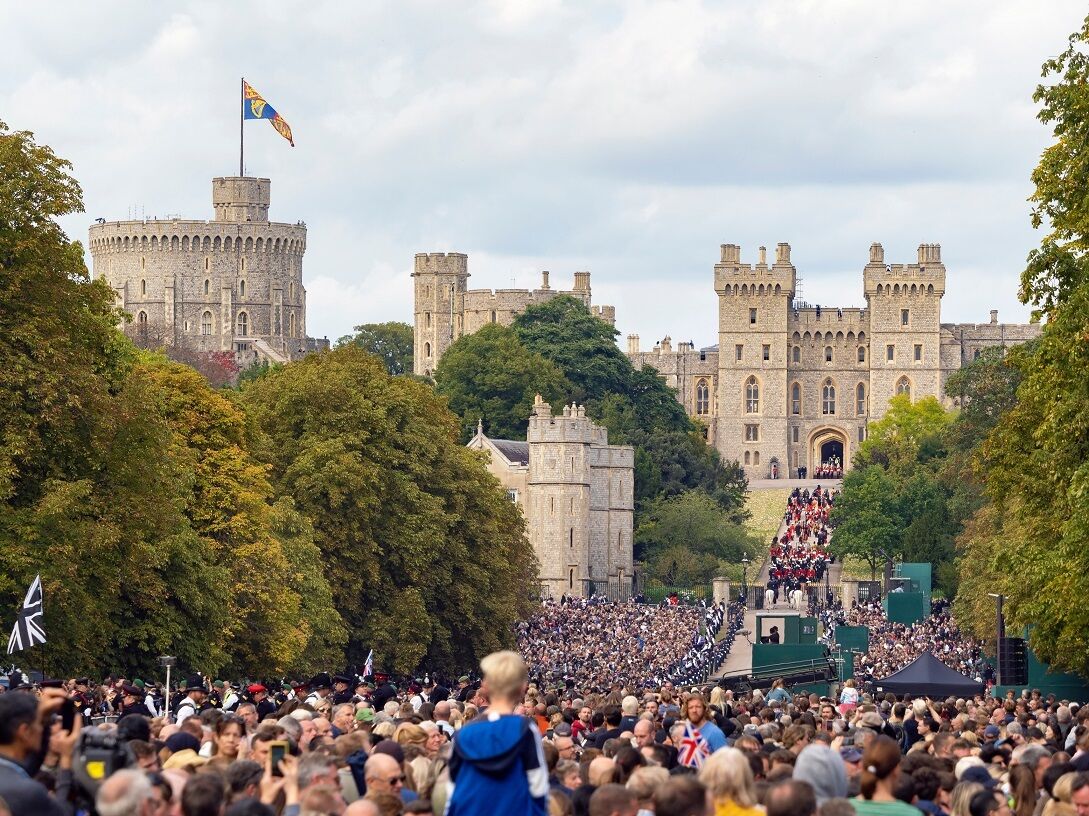The Client
The Civil Nuclear Constabulary (CNC) is a specialist branch of the Police service whose primary role involves protecting the ten sites in England and Scotland governed by the Civil Nuclear Police Authority.
CNC is the fourth largest armed constabulary in the UK as the majority of its 1,300 officers are Authorised Firearms Officers.
They also play a critical part in the UK’s Counter Terrorism response. As a result, CNC officers are involved in counter terrorism contingency planning for extreme threat and high-risk events – they must be prepared to respond to requests for armed assistance anywhere in mainland Britain, often with minimal warning.
The Challenge
Following the death of Queen Elizabeth II, when millions of people flocked to London to be part of the events leading up to the State Funeral on 19th September 2022, CNC was called into action as part of “Operation London Bridge” - a multi-agency plan which has been refined over many years in preparation for the State Funeral of the reigning monarch.
The CNC required fast, secure and reliable transport to enable mass deployment of Operational Policing Units across England and Scotland.
The Solution
Within hours of Operation London Bridge being invoked, the CNC contacted CMAC to request their help in supplying fully compliant, security-checked transport and accommodation for over 200 officers over the six-day period they’d be involved.
CMAC’s expert operational team worked with CNC to implement pre-agreed risk assessed contingency and emergency plans for their emergency transport and accommodation requirements.
CMAC recognises that a proactive and collaborative compliance, and adherence to risk and security protocols, is of paramount importance to CNC.
Operation London Bridge is the largest co-ordinated policing operation the country has ever seen. It was initiated with minimal warning which meant all organisations and individuals involved were required to respond quickly, while remaining mindful there was no room for error.
It was important that the CNC could be confident that every supplier CMAC uses is vetted, approved and trustworthy. With CMAC, the CNC can ensure that suppliers and drivers have been subjected to ongoing checks that ensure compliance and best practice.
CNC officers, complete with arms and equipment, had to be collected from locations around the UK, many of which are in remote areas with limited access to transport services, and moved to temporary bases across London, Windsor and Essex including Westminster Hall, where the Queen was lying in state, the Long Walk at Windsor, and Stanstead Airport.
The scale of the operation was vast and complex. The challenge was exacerbated by the fact that it was being carried out at short notice and within the context of an historic event of unparalleled importance in which even the slightest glitch would, potentially, have significant logistical and security consequences.
CMAC worked around the clock, to identify and deploy, at short notice, compliant and trustworthy transport, and accommodation for over 200 CNC officers via its network of over 4,000 pre-approved suppliers.
CMAC also had to contend with limited availability because of the huge pressure on all modes of transportation and accommodation caused by the influx of tourists visiting London, along with a reduction in the number of suppliers available as many also took time off to pay their respects to the late Queen.
Because officers could be redeployed at a moment’s notice, CMAC’s operational support staff had to work their magic finding compliant transport suppliers ready and capable of collecting and taking fully equipped armed officers across a busy, congested London.
The CNC had the reassurance of knowing that they could contact CMAC, 24/7, on all six days of the Operation to ensure officers were where they needed to be, on time. With CMAC expertly handling all aspects of transport and accommodation, CNC's officers and support staff were free to concentrate on ensuring the safety and security of the British public and visitors.
At the end of the six-day period, CMAC managed the final aspect of this complex project by coordinating the safe collection and return of officers to their homes, usual place of work, or other allocated destination.
CMAC’s response demonstrated their ability to translate planning and processes into effective action - all of which were informed by a deep understanding of our organisation and operational challenges. It was reassuring to know that we could call on CMAC, 24/7, on all six days of the Operation to ensure officers were where they needed to be, on time. With CMAC expertly handling all aspects of transport and accommodation, our officers and support staff were free to concentrate on ensuring the safety and security of the British public and visitors. CMAC also had to contend with limited availability because of the huge pressure on all modes of transportation and accommodation caused by the influx of tourists visiting London, along with a reduction in the number of suppliers available as many also took time off to pay their respects to the late Queen. The managed ground transport experts also had to adhere to CNC’s critical safety and security requirements - “with every seat occupied by an officer, another seat had to be available for the officer’s equipment and weaponry, which, in effect doubled the transport requirement. At the end of the six-day period, CMAC managed the final aspect of this complex project by coordinating the safe collection and return of officers to their homes, usual place of work, or other allocated destination. The collaborative working between the two organisations, which ensures CNC officers have the safe and reliable transport and accommodation needed to carry out their duties, has never been more evident than during the successful Operation London Bridge.
Steven Edwards, Chief InspectorCivil Nuclear Constabulary

